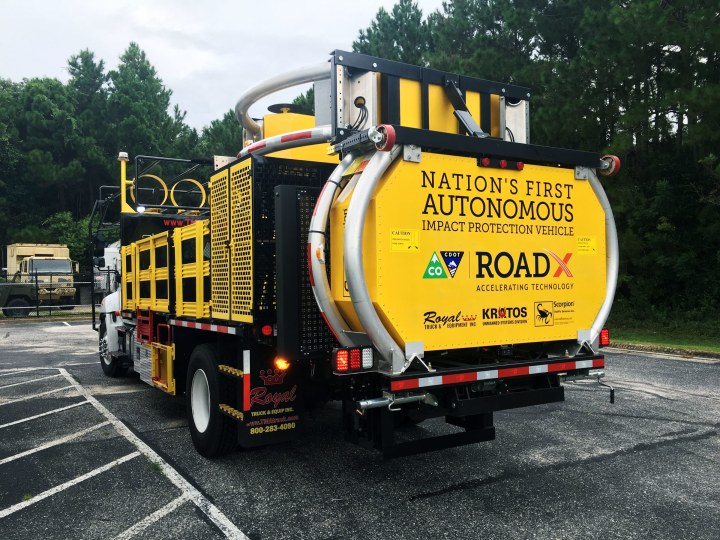
The idea of a crash truck itself is nothing new. In order to keep workers safe, these large trucks were designed to withstand significant impact. But previously, these trucks had to be manned by other humans, which largely defeated the purpose.
“People often talk about the coming job displacement of automated vehicles—well this is actually one job I want to get people out of,” Shailen Bhatt, Colorado’s Department of Transportation’s executive director told Wired. “The idea that we have a truck that’s job is to get hit, with someone sitting in it, well that doesn’t make a lot of sense.
So instead, a partnership between Royal Truck and Equipment and Kratos Defense gave way to this new autonomous truck that acts as a moving shield for road workers. In the event that a crash does occur, the hope is that minimal damage will be done to actual human life. While Kratos is generally focused on military drones and missile targeting systems, this is a distinctly civilian application. The vehicle is controlled by a computer, which dictates both the steering and the pedals of the rather large truck.
How does it know where to go? As Wired explains, the truck follows the path of a human-driven vehicle that features extremely precise GPS. The self-driving truck then tails this car “within plus or minus four inches,” according to Maynard Factor, director of business development at Kratos. This means that the robotic truck doesn’t need to worry about road signs or markings — it only needs to avoid obstacles and follow the leader.
The hope is that if this initial test in Colorado proves successful, the state will purchase more of these trucks. And so far, Bhatt said, things seem to be going well.


